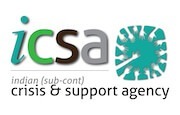Family Problems and Resolution
We work with people to find culturally suitable options to resolve relationship conflicts or breakdown. We aim for timely practical outcomes to avoid stress escalation.

Resolving Family Conflict
We support families who are in conflict or dispute and want to resolve those conflicts. At times matters that are seemingly trivial can escalate to a point of no return and the relationship breaks down so the family moves to separation.
Many of our clients do not want separation, due to cultural obligations and position in society, however most definitely want the conflict to end.
Even where separation becomes inevitable, they may still want to retain the cultural links and familial relationships particularly for children but can be for themselves too.
Our model of practice is to work with all parties to find options in resolving conflicts as a culturally fit alternative.
Our services are family centric, we assist in all types of family or domestic conflicts using principles of conflict resolution with self-determination for the parties conducted by a professional conciliator.
We encourage our clients to have as much opportunity to be self-determining and have some say in the final decisions. To avoid expensive and drawn-out cases in court.
Family Conflict Resolution is the informal way to resolve matters between parties and come to final decisions or agreements. A way to avoid expensive litigation, further complications; prevent escalation of stress and further breakdown
Family Dispute Resolution
Families in the process of separating or already living apart have several matters to deal with.
- Personal or emotional
- legal and financial.
- practical
Family Dispute Resolution (FDR) is a formal process in the legal framework. It is a means of resolving disputes in person by making agreements on key and important matters to move on quickly and with minimal stress following separation.
FDR is a process of mediation session(s) held by an accredited mediator, who helps parties to come to a mutually agreed outcomes or to settle at a point which is to the best satisfaction possible for both parties.
Mediation is the lowest cost legal option of resolving matters relating to
- Separation and divorce
- Parenting arrangements
- Property settlement
It is important to seek some legal advice in relation to your rights and obligations if you are considering separating or divorce.


Relationship Reconciliation
Reconciliation support is for families who wish to reconcile differences and stay together. Families who cannot find the middle ground to resolve their issues can benefit from reconciliation support.
The service assists families in framing problems and finding ways to address the issues to remove disharmony and conflict.
- Our support is based on understanding CALD-specific cultural norms
- We use qualified practitioners
- Our consultants have over 20 years of experience
Using a reconciliation process between family members, works towards building healthy relationships in accordance with what that really means to the family.
Family Conciliation
Family relationships are more than couples and children, in ethnic families particularly the extended family can be even more important and highly influential. These relationships can also need support in maintaining harmony and family stability.
As families mature, there can be other areas of disagreement, such as division of property, wills, care of elderly family members, financial responsibility within families.
Claiming rights or measure of contribution can be highly sensitive and working out fair outcomes problematic. Many families unnecessarily end up in court, which may even result in less than what may have originally been achievable.
We offer support for:
- Marital relationships – resolving conflicts
- Parent – child or children – generational/cultural
- Separation – making reasonable agreements.
- Siblings: finances and/or care for parents, relatives, inheritance, guardianship
- Kinship Dispute: resolving disagreements between relatives
- Community relationships: dispute between community members.
- Domestic Relationships: dispute in living arrangements, finance (eg housemates).

Managing a Relationship Breakdown
As migrants it can be lonely and bewildering when things go wrong; support networks are challenged as they are often mutual.
When a relationship irretrievably breaks down, there are many things to consider.
- The shock and loss of the relationship – grief & betrayal
- Getting used to being alone and doing things by yourself – build independence.
- dealing with emotions and nostalgia – why me
- taking over financial responsibility – managing debt
- managing administration and practical problems maybe for the first time
- understanding and handling complex legal matters –costly added expenses
- managing family, their cultural expectations – reactions & judgements from other people
- building a future – where to from here.
Many people feel so overwhelmed they just bury their head in the sands, until they are forced to deal with administrative claim, legal summons or penalties. Timely and appropriate attention can avoid many unnecessary complications.
We offer a tailored program to support clients through the first weeks of being alone and getting connected to the right professional advice while having someone to confidentially work through each issue.
Child Supervision Services (Court ordered)
ICSA offers a range of culturally appropriate and in language services in relation to children’s visitation between parents. These services are suitable if there is a final parenting order or through interim court orders.
Supervision is a means of ensuring court orders are complied with by both parents and aim to protect and minimise harm to children.
What is supervised child contact?
Child Supervision is a term for a child or children spending time with a parent or family member while under supervision.
This can occur when a child hasn’t had time with that parent for a long period, or some other reason that is seen to be relevant. Often it is part of a court order while a parenting plan is being agreed for long term arrangements for the child or children.
Supervision can be for an entire visit or just for handovers.
Supervised Visits
A full supervised visit will include:
- Being handed the children from one parent
- Taking the children to an agreed location to the other parent
- Remaining with the children at all times and observing.
- Ensuring any court order requirements are adhered to eg no phone calls in the visit. .
- Concluding the visit on time
- Returning the children to the original parent.
- Completing a report and submitting to the appropriate agency or person.
Our supervisors are trained to provide a friendly but professional service.
Supervised Changeover
We facilitate the handover of a child from one parent/carer to another. Changeovers take place at an agreed and mutually suitable location. Supervised changeover or exchange is recommended for:
- Parents or parties who do not wish to or cannot meet face-to-face
- safe transfer between children and both parents.
- Children to avoid exposure to conflict or anxiety between parents at exchange
- Allowing exchange if an ADVO in place
Our service offers transport for children to and from contact visits.

Booking Child Supervision
Booking a supervision can be done by any party relevant to the matter, either parent or a legal professional acting for one the parents.
The intake process will take details from all parties and seek consents. This includes meeting the family members.
A supervisor will be allocated and briefed on the level and type of supervision.
The supervisor will meet the parents before any supervised visit, an important step in reassuring anxious children or parents who can ask the supervisor questions.
The visits will then be scheduled and commenced, at the end of each visit the Supervisor prepares a written report shared with both parties or as Court ordered as evidence of time spent with the child. Our team is:
- Qualified and trained, efficient and friendly staff.
- Knowledgeable in child protection, family law and supervised contact
- Compliant with relevant National Police and Working with Children Checks.
- Rigorously assessed, skilled and adept at report writing and observation
- Multi-dimensional in an affordable professional service that integrates cultural needs and language
- Compassionate, child-focused support.

